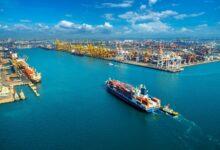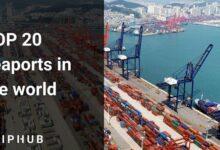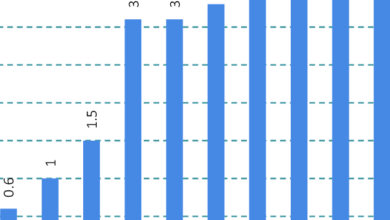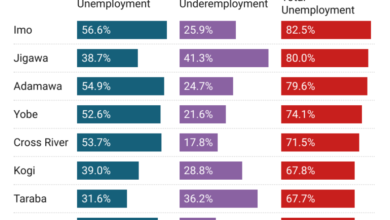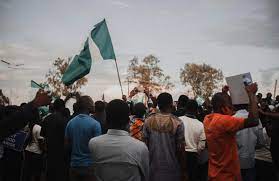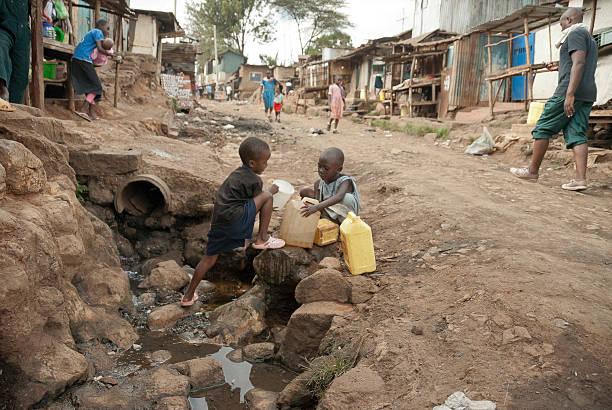
Top 15 Poorest States in Nigeria and their Poverty Rate 2023
Top 15 Poorest States in Nigeria and their Poverty Rate 2023 – Nigeria, a diverse nation in West Africa, has experienced significant economic growth in recent years. However, the fruits of this growth have not been evenly distributed across all states. As of 2023, there are several states in Nigeria grappling with persistently high poverty rates. This article delves into the top 15 poorest states in Nigeria and scrutinizes the factors contributing to their economic challenges and high poverty rates.Top 15 Poorest States in Nigeria and their Poverty Rate 2023
The Top 15 Poorest States in Nigeria and their Poverty Rate 2023 are:
1. Sokoto:
Sokoto, located in the northwestern part of Nigeria, stands as the poorest state with an estimated poverty rate of 87.73 percent as of 2019. Despite being a key producer of onions and tomatoes, the state’s development is hindered by abandoned road projects, impeding the distribution of goods and services. The lack of foreign investment and economic diversification has further strained the state’s financial prospects.
👉 Relocate to Canada Today!
Live, Study and Work in Canada. No Payment is Required! Hurry Now click here to Apply >> Immigrate to CanadaRead Also: 15 Best Nigerian Dog Breed Clubs
2. Taraba:
Taraba state, situated in the northeastern region of Nigeria, mirrors Sokoto’s poverty rate at 87.72 percent. Although agriculture is the primary employment source, inadequate road infrastructure has hampered economic growth. The state’s road conditions, particularly during wet seasons, have contributed to challenges in product transportation and access to markets.NYSC Portal
3. Jigawa:
Jigawa, sharing a border with the Republic of Niger, holds an alarming poverty rate of 87.2 percent. The state’s semi-arid climate necessitates heavy reliance on agriculture, which is the backbone of its economy. However, the state faces issues such as border instability and a lack of infrastructure, particularly in terms of road networks.
4. Ebonyi:
Ebonyi, the first state from Nigeria’s Southeast to make the list, has a poverty rate of 79.76 percent. While being a major rice producer offers economic promise, the majority of indigenes lack education, relying primarily on agriculture. The state’s commitment to improving infrastructure, including road networks, is a positive step toward development.Good morning My Love Message
Read Also: 15 Best Rechargeable Lamp with Solar Charging Nigeria
5. Adamawa:
Boko Haram’s impact has significantly affected Adamawa state’s economy, contributing to its poverty rate of 75.41 percent. Disrupted economic activities and citizen displacement have been detrimental to the state’s development. Although road networks have suffered due to flooding, the government’s intervention in halting construction on impacted routes is noteworthy.JAMB portal
6. Zamfara:
Zamfara, located in Nigeria’s northeast, confronts the adverse effects of ongoing attacks and kidnappings, leading to a poverty rate of 73.98 percent. With economic operations halted and citizens seeking refuge in neighboring towns, the state’s financial prospects have taken a significant hit. Road conditions are a concern, further adding to the challenges.
7. Yobe:
Despite being a major cattle provider, Yobe state faces a poverty rate of 72.34 percent. Agricultural pursuits constitute the backbone of the economy, though issues such as road conditions have historically impeded growth. However, recent investments in road and market projects hint at potential improvements.
👉 Relocate to Canada Today!
Live, Study and Work in Canada. No Payment is Required! Hurry Now click here to Apply >> Immigrate to Canada8. Niger:
Niger state’s poverty rate of 66.11 percent is exacerbated by various factors, including widespread illiteracy and insurgent attacks. Agricultural challenges stemming from climatic shocks further contribute to the state’s economic struggles. Poor road conditions have compounded these problems, necessitating substantial infrastructure development.
Read Also: 15 Best Stud Machine in Nigeria
9. Gombe:
Gombe state’s location in the northeastern region has exposed it to insurgency-related challenges, leading to a poverty rate of 62.31 percent. Insecurity has stymied economic growth, and the state’s road infrastructure has suffered due to flooding, impacting mobility and financial prospects.
10. Katsina:
Katsina, situated in the northwest, grapples with a poverty rate of 56.42 percent. Frequent bandit raids have disrupted economic activities, particularly in rural areas. The state government’s focus on opening rural roads aims to improve mobility for residents and reinvigorate economic growth.
11. Plateau:
Despite its potential as a tourism destination, Plateau state’s poverty rate remains at 55.1 percent. The state’s status as a significant tin and columbite exporter hasn’t translated to substantial economic growth. Road projects are expected to contribute to the state’s development and economic diversification.Romantic love message
12. Nasarawa:
Nasarawa state, a major salt producer, contends with a poverty rate of 57.3 percent. While its geographical location connects various states, infrastructural challenges and limited access to essential services hinder economic progress. Ongoing road repairs and construction aim to address these limitations.
Read Also: Top 15 Highest Paid Movie Stars in the world
13. Benue:
Benue state, known as Nigeria’s food basket, confronts a poverty rate of 32.9 percent, showcasing the paradox of abundant agricultural resources coexisting with financial challenges. Conflicts between farmers and Fulani herders contribute to instability, and poor road conditions hinder the distribution of agricultural produce.
14. Kebbi:
Kebbi state, with a poverty rate of 72.0 percent, faces multifaceted challenges. A heavy reliance on subsistence farming, coupled with inadequate access to modern farming techniques and credit facilities, contributes to the state’s economic struggles. Infrastructure deficiencies further impede growth.Information guide Nigeria
15. Kogi:
Kogi state, also heavily reliant on agriculture, contends with a poverty rate of 49.8 percent. Similar to Kebbi, insufficient access to modern farming technologies and credit facilities limits agricultural productivity. Inadequate infrastructure exacerbates economic challenges, making it difficult to attract investments and businesses.
Read Also: 15 Best Lotions for all Body Types in Nigeria
Conclusion
These top 15 poorest states in Nigeria exhibit common challenges, including heavy reliance on agriculture, inadequate infrastructure, security threats, and economic disruptions. To alleviate poverty and promote economic development, a holistic approach involving investments in infrastructure, educational advancement, and sustainable economic diversification is essential. Addressing these issues could pave the way for a more equitable distribution of economic prosperity across Nigeria’s diverse states.
Check JAMB RESULT
Check and Confirm: How much is Dollar to Naira
